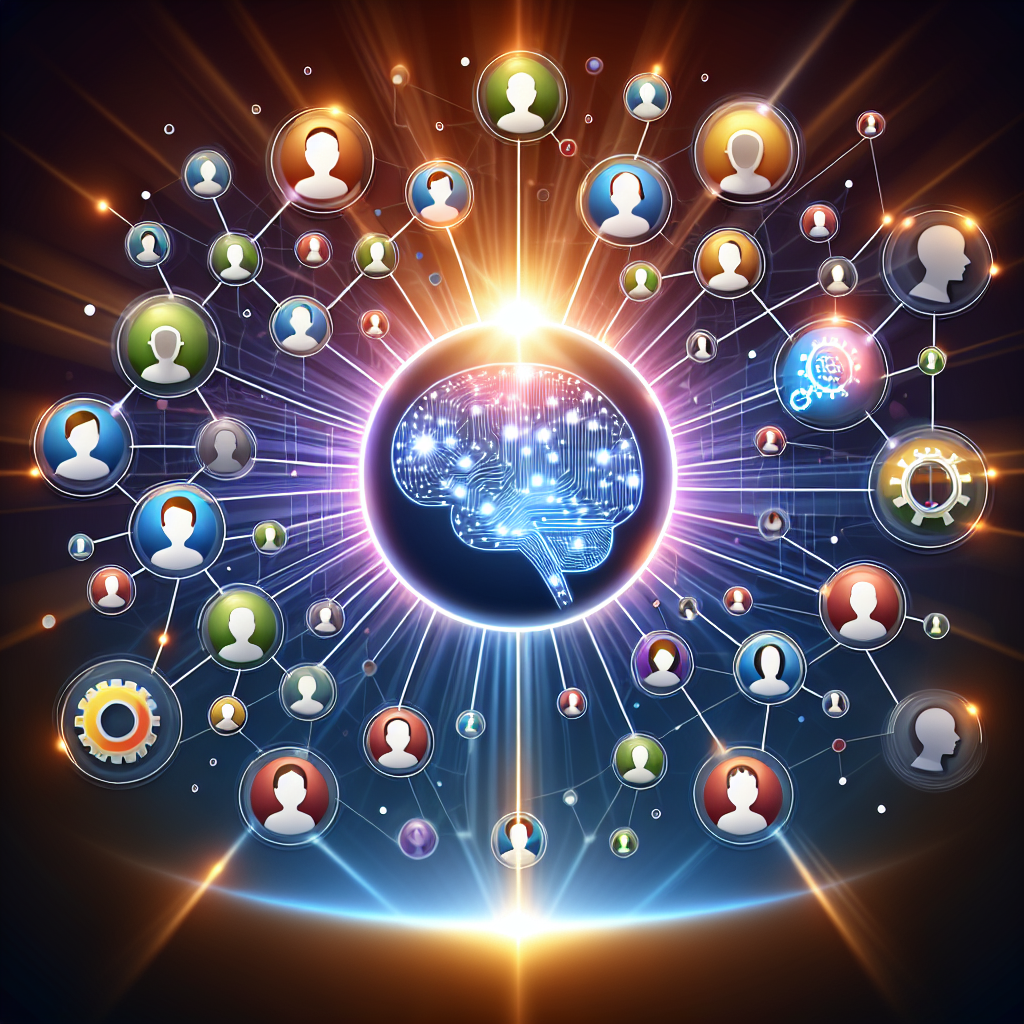The Role of AI in Identifying and Addressing Social Issues
Artificial Intelligence (AI) has become an increasingly important tool in identifying and addressing social issues around the world. From poverty and inequality to healthcare and education, AI has the potential to revolutionize the way we tackle these complex challenges. In this article, we will explore the role of AI in identifying and addressing social issues, and discuss how this technology is being used to create positive change in society.
Identifying Social Issues
One of the key strengths of AI is its ability to process and analyze large amounts of data quickly and efficiently. This makes it an invaluable tool for identifying social issues that may otherwise go unnoticed. For example, AI can be used to analyze social media data to identify trends and patterns that may indicate the presence of social issues such as discrimination, violence, or poverty.
AI can also be used to analyze data from various sources, such as government reports, academic studies, and surveys, to identify social issues at a broader level. By analyzing this data, AI can help policymakers and organizations understand the root causes of social issues and develop effective strategies to address them.
Addressing Social Issues
Once social issues have been identified, AI can be used to develop and implement solutions to address these challenges. For example, AI can be used to develop predictive models that can help identify individuals who are at risk of experiencing social issues such as homelessness, domestic violence, or mental health issues. By identifying these individuals early on, organizations can provide targeted support and interventions to prevent these issues from escalating.
AI can also be used to optimize the delivery of social services, such as healthcare and education. For example, AI-powered chatbots can be used to provide mental health support to individuals in need, while AI algorithms can be used to personalize educational materials for students based on their individual learning styles and needs.
In addition, AI can be used to monitor and evaluate the impact of social programs and interventions. By analyzing data on program outcomes and participant feedback, AI can help organizations understand what is working well and what can be improved, allowing them to make data-driven decisions to improve the effectiveness of their programs.
Examples of AI in Action
There are many examples of AI being used to identify and address social issues around the world. One such example is the use of AI in disaster response and recovery efforts. AI algorithms can analyze satellite imagery to assess the extent of damage caused by natural disasters such as hurricanes, earthquakes, and wildfires, helping organizations prioritize their response efforts and allocate resources more effectively.
Another example is the use of AI in healthcare to improve access to medical services for underserved communities. For example, AI-powered diagnostic tools can help healthcare providers in remote areas diagnose patients more accurately and quickly, while telemedicine platforms powered by AI can connect patients with healthcare providers regardless of their location.
AI is also being used to address social issues related to education. For example, AI algorithms can analyze student performance data to identify at-risk students who may need additional support, while AI-powered tutoring systems can provide personalized learning experiences for students to help them succeed academically.
FAQs
Q: Can AI be biased in identifying and addressing social issues?
A: Yes, AI can be biased if the data used to train the algorithms is biased. It is important for organizations to ensure that the data they use is representative and unbiased to avoid perpetuating existing social inequalities.
Q: How can AI be used to address social issues in developing countries?
A: AI can be used in developing countries to address a wide range of social issues, such as healthcare, education, agriculture, and poverty reduction. For example, AI-powered diagnostic tools can help healthcare providers in remote areas diagnose patients more accurately and quickly, while AI algorithms can analyze agricultural data to improve crop yields and food security.
Q: What are the ethical considerations of using AI to address social issues?
A: Ethical considerations of using AI to address social issues include issues such as privacy, data security, transparency, accountability, and bias. It is important for organizations to consider these ethical considerations when developing and implementing AI-powered solutions to ensure that they are used responsibly and ethically.
In conclusion, AI has the potential to play a transformative role in identifying and addressing social issues around the world. By leveraging the power of AI to analyze data, develop solutions, and monitor outcomes, organizations can create positive change in society and improve the lives of individuals facing social challenges. It is important for organizations to consider the ethical implications of using AI to address social issues and ensure that these technologies are used responsibly and ethically to create a more equitable and just society.

